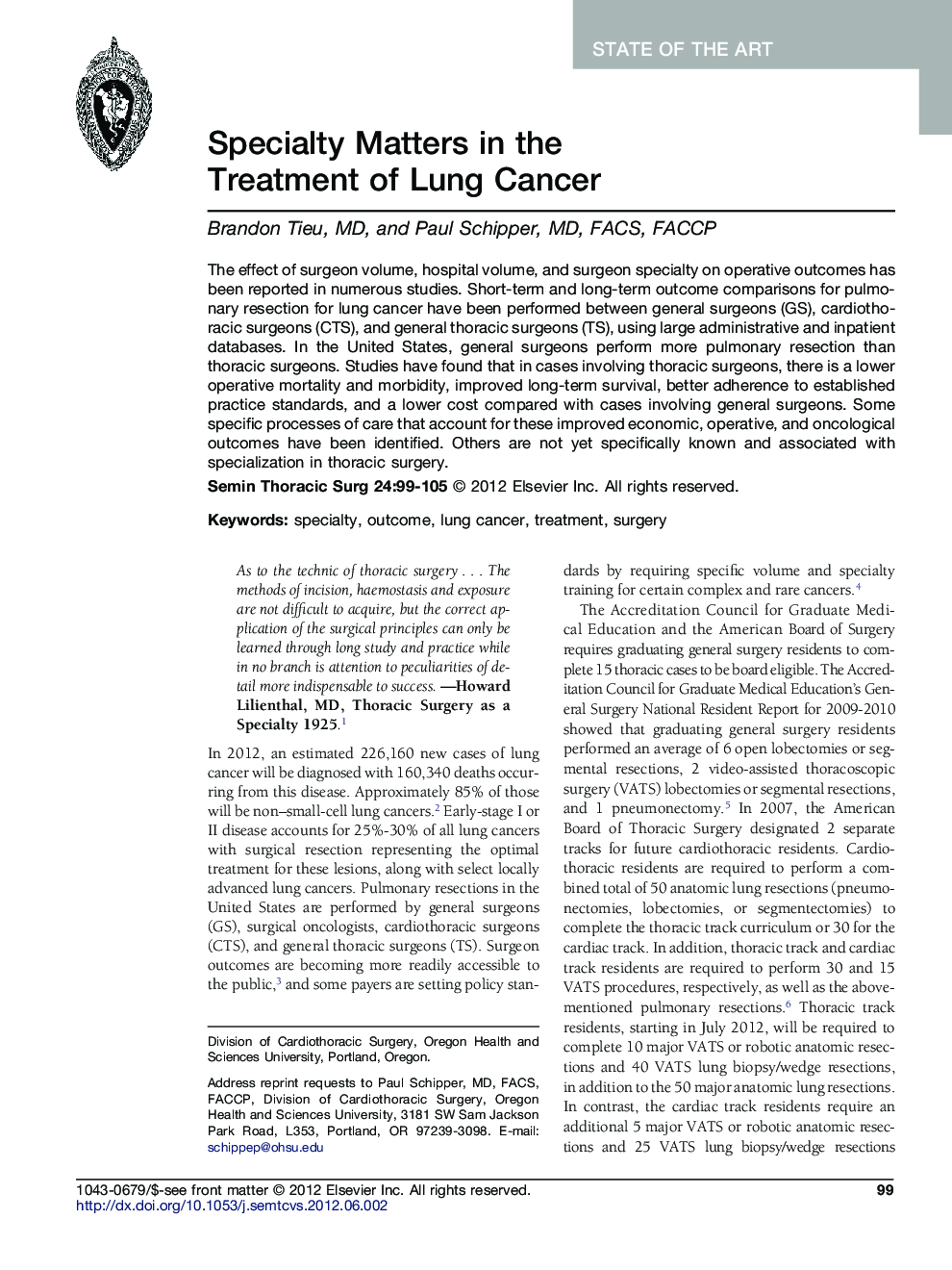| Article ID | Journal | Published Year | Pages | File Type |
|---|---|---|---|---|
| 3025427 | Seminars in Thoracic and Cardiovascular Surgery | 2012 | 7 Pages |
The effect of surgeon volume, hospital volume, and surgeon specialty on operative outcomes has been reported in numerous studies. Short-term and long-term outcome comparisons for pulmonary resection for lung cancer have been performed between general surgeons (GS), cardiothoracic surgeons (CTS), and general thoracic surgeons (TS), using large administrative and inpatient databases. In the United States, general surgeons perform more pulmonary resection than thoracic surgeons. Studies have found that in cases involving thoracic surgeons, there is a lower operative mortality and morbidity, improved long-term survival, better adherence to established practice standards, and a lower cost compared with cases involving general surgeons. Some specific processes of care that account for these improved economic, operative, and oncological outcomes have been identified. Others are not yet specifically known and associated with specialization in thoracic surgery.
